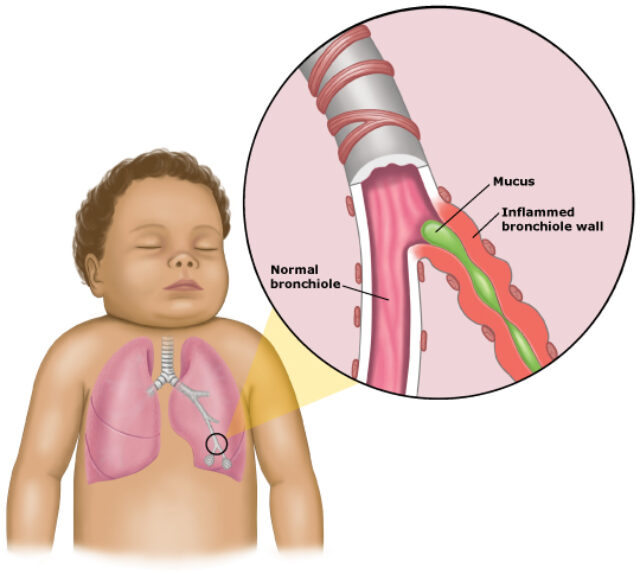
Bronchiolitis is a chest infection caused by a virus that affects bronchioles, the small breathing tubes in the lungs, causing babies and small children to cough, wheeze and have trouble breathing. It is a common infection in the first year of life, and especially in babies under six months of age.
The disease is usually caused by a viral infection, and many viruses can cause the illness with the most common being RSV (respiratory syncytial virus). It is infectious and is usually caught from a close contact who has a cold or cough. It can make babies sick for three to seven days, and the cough can last for several weeks.
Some of the symptoms of bronchiolitis are
If your baby is unwell and coughing it will be important to see your doctor for a check to see if it is bronchiolitis or if there is something else causing the cough.
For the latest statistics on childhood bronchiolitis in New Zealand, click here.
For more information download the What Is Bronchiolitis fact sheet.